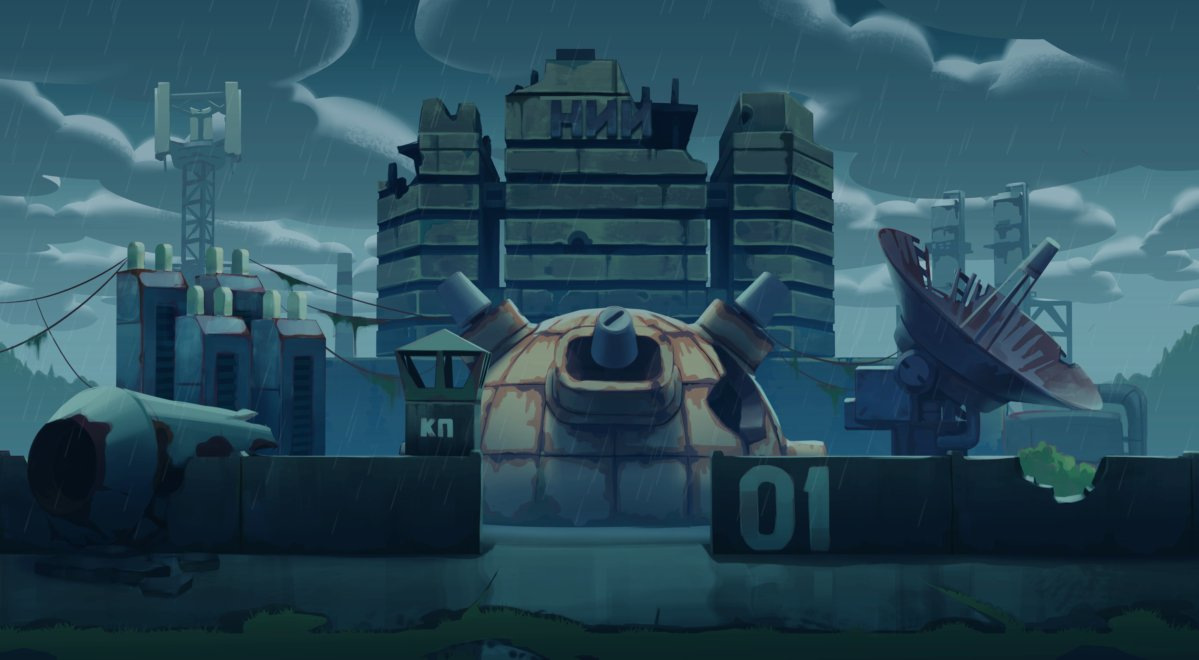Week highlights: first MyPaint 2.0 alpha release, new tools In Blender’s Grease Pencil, more add-ons ported to Blender 2.80, new features in various video editors, first full sequence screenshot of Spring animated movie in Blender VSE, upcoming IFC diffing in FreeCAD.
Graphics
Perhaps the best news of the week here is the much anticipated and long overdue alpha release of MyPaint 2.0 (both AppImage and two Windows builds available). There are quite a few changes there (named views for layers are great!), but the game changer, of course, is the simulation of spectral pigment mixing.
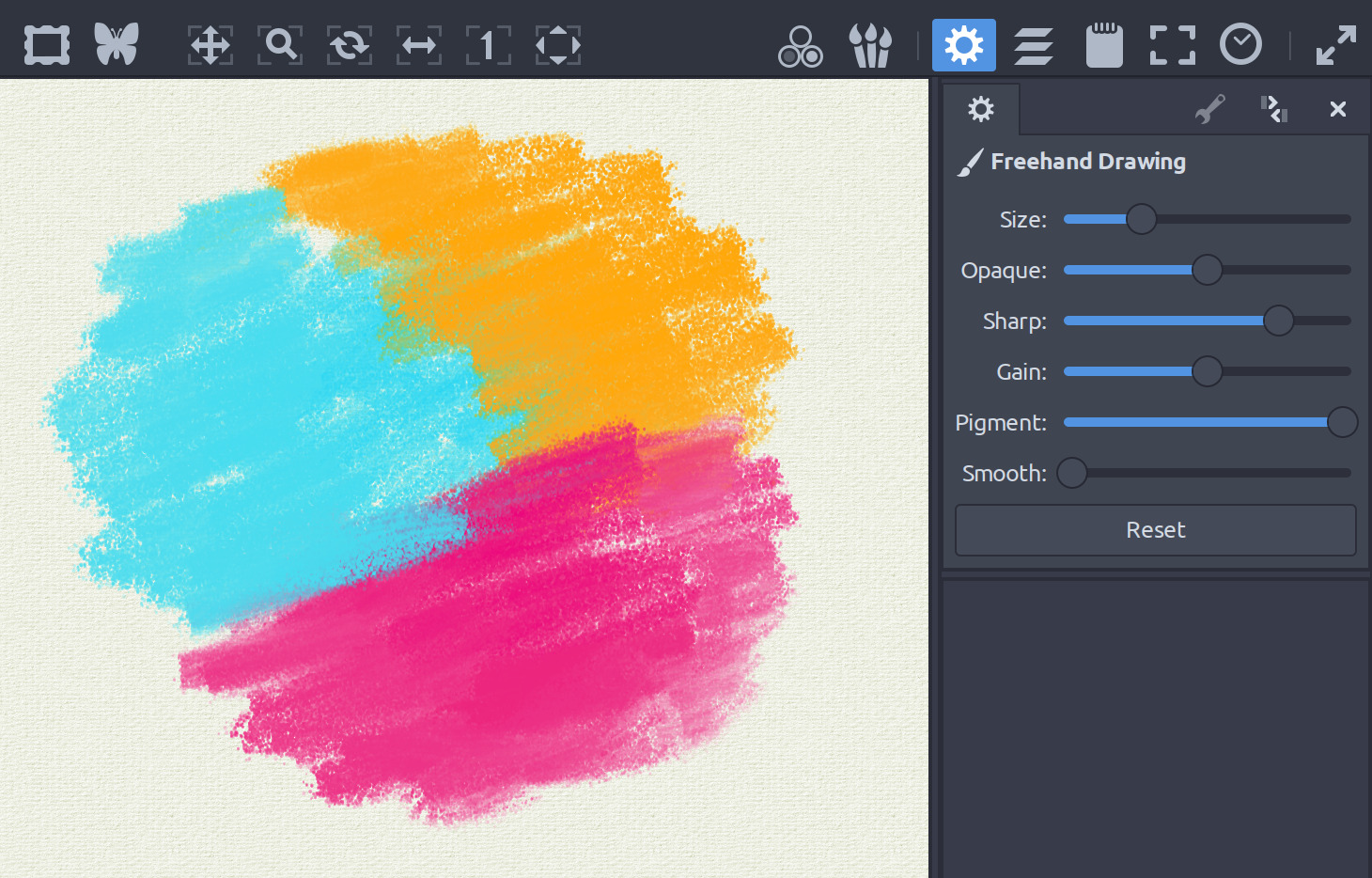
There are some easily understandable performance concerns, especially since Brien has already simplified computations to make them faster. Painting with a large brush is very noticeably slower indeed, so we’ll see how far this can be improved.
There is an ongoing discussion about the slider widget on GIMP’s IRC channel, with some UX/UI research now happening in the wiki. It’s yet unclear what kind of action will be taken (if any). For now, Jehan changed the brush settings sliders to always increment on integers. That is, you can still use a 217,56px large brush if you absolutely want to, but you’ll need numeric input for that. This change might be extended to some other settings as well (opacity sounds like a good candidate).
Elad Shahar rewrote his Spyrogimp script for GIMP in Python, with some automatic preview (by drawing directly on a temporary layer, not as a GEGL preview), and using the current tool options (current brush, etc.).
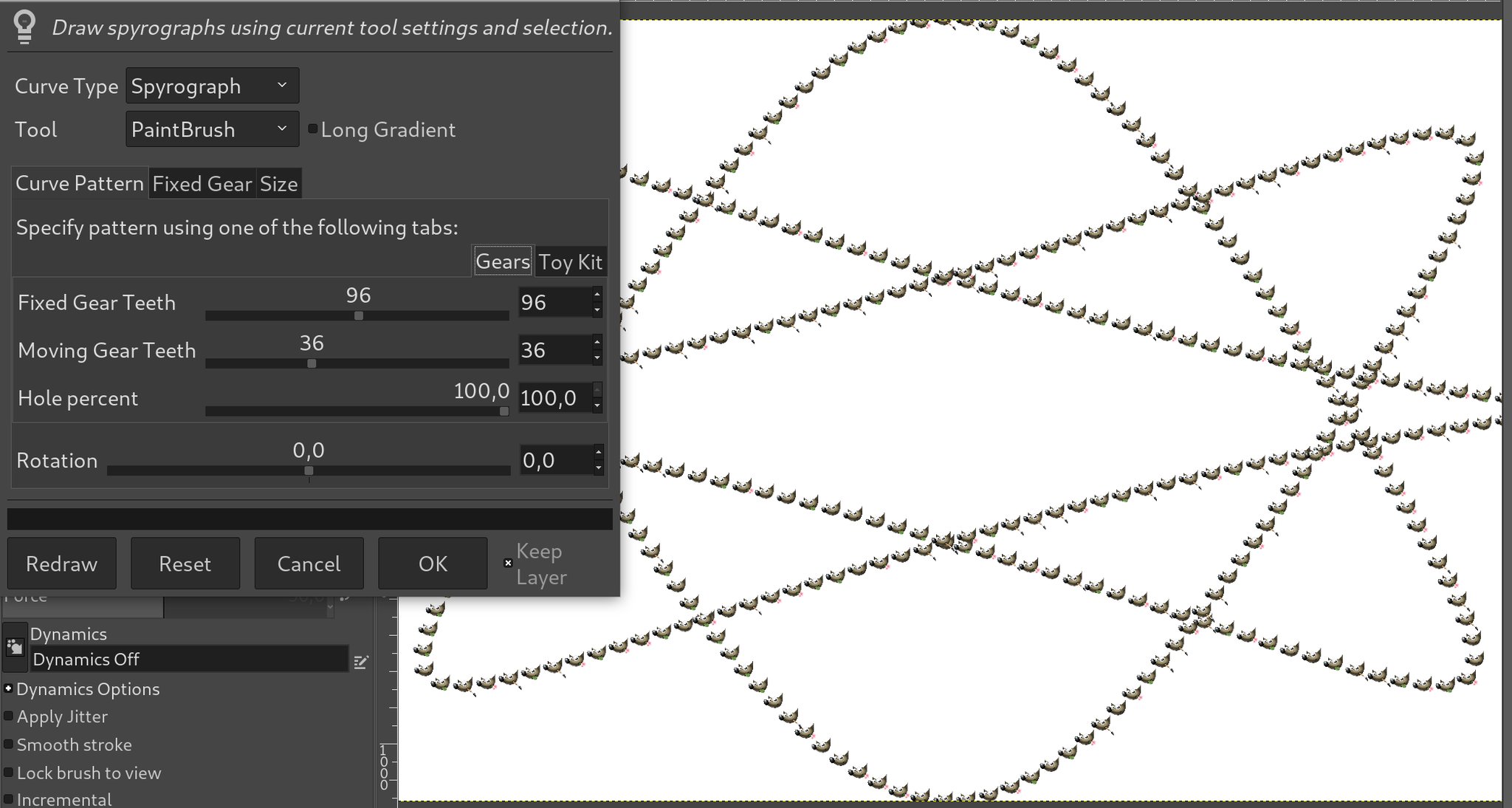
Ell improved adaptive supersampling in the Gradient tool by making it render the gradient tile-by-tile instead of row-by-row, which now should improve performance a lot.
Last week marked a very much welcome return of Wolthera to hacking on Krita. She did some work on color space handling in masks and transparency masks. Two more user-visible changes come from Kuntal Majumder and Noemie Scherer: adjusting the granularity preview while doing cage transforms, and newly added direction choice in the Image Split plugin.
There’s also an interesting discussion on improving how Krita handles brush opacity. The first fix that the community produced was applied and then reverted. The team is looking into a cleaner solution and figuring out how do deal with tons of existing brush, since any fix is likely to dramatically change brushes’ behavior.
Inkscape developers are still mostly busy with code refactoring, but Jabier Arraiza is also working on a new fancy gallery-like selector for live path effects.
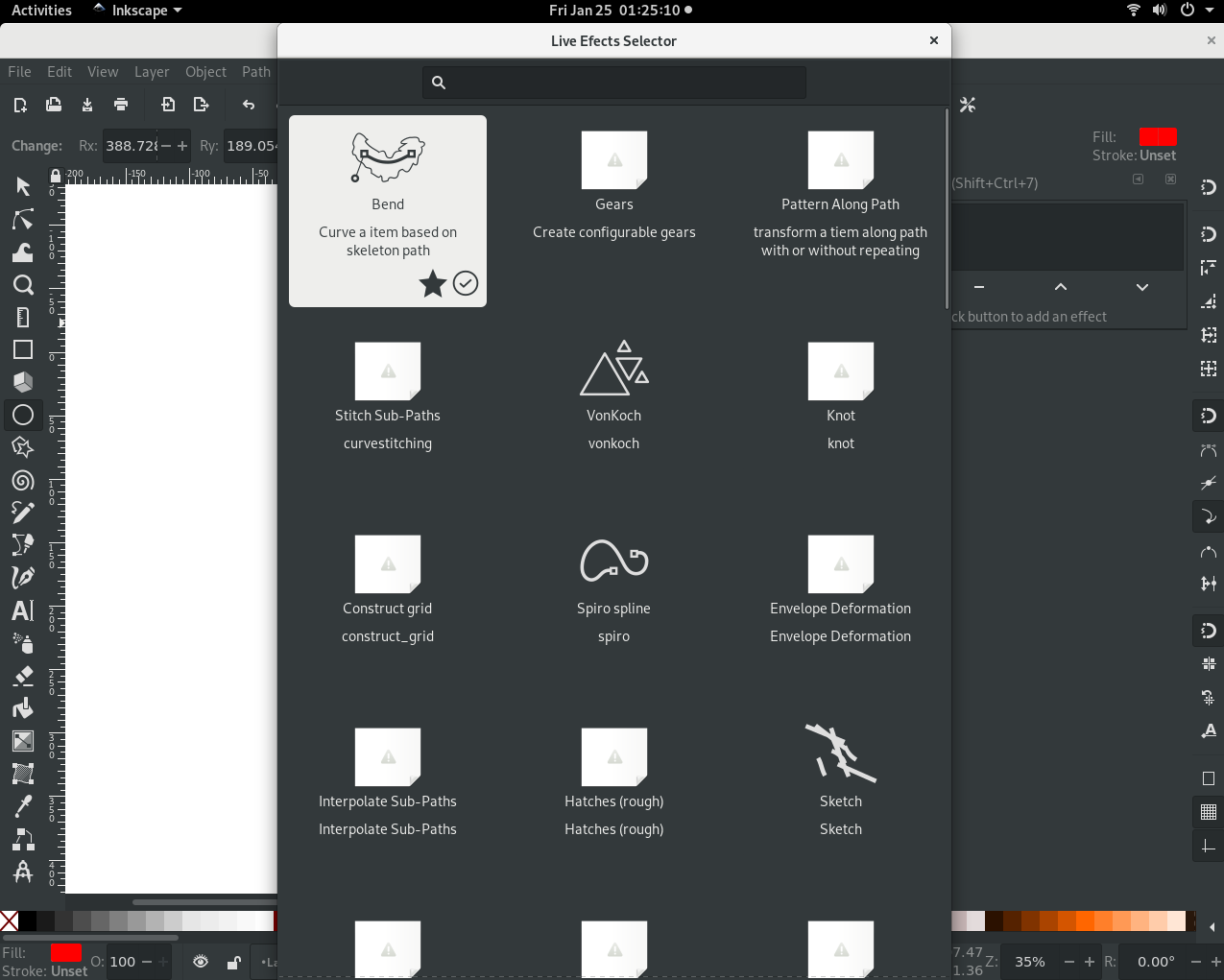
3D
In terms of 3D, last week kicked of with the announcement that Adobe is acquiring Allegorithmic, developer of Substance Painter and Substance Designer.
Naturally, the community rushed to point out that supporting either Blender development via Blender Fund, or Armory and its ArmorPaint program via Gumroad would benefit game artists a lot more in the long run. Which Ton Roosendaal confirmed:
Obviously we are already eyeing much better procedural texture tools in Blender for a while - we know how to do it, but we need to wrap up 2.80 targets first. Just help us doubling the fund! Deal?https://t.co/ILYhIfEZbJ #b3d
— Ton Roosendaal (inactive)🔸 (@tonroosendaal) January 23, 2019
And then Lubos Lenco pointed out he’s releasing Armory 0.6 the next week (it’s this week now) and expecting to kick off new ArmorPaint release in February.
If you are eyeing a 3D painting software, ArmorPaint just happens to have another big upgrade around the corner. Humbled by the enormous support! pic.twitter.com/6pA7yohTq2
— Lubos (@luboslenco) January 25, 2019
And then this happened:
So heartwarming to see my favorite apps @GIMP_Official, @Krita_Painting & @Inkscape supporting @blender_org after @Adobe @Allegorithmic news.
— Pablo Vazquez 🔸 (@PabloVazquez_) January 24, 2019
Good times ahead for open source! Together we strive. 💛
Paint+Sculpt Quest 2019 anyone? Make it happen at https://t.co/BDkeg1jbgw #b3d pic.twitter.com/0UDcAbYAdz
But it’s been an interesting week for Blender regardless. Clément Foucault added initial support for depth of field in the workbench, which “makes it possible to have a decent blur for foreground over defocused background in one pass only”.
And then sculpting toolbox got Topology Rake to align edges along brush while painting.
Meanwhile, Antonio Vazquez has been a busy bee again. First of all, he added two new features to the Grease Pencil. The first one, Cutter, is a tool that’s great for cleaning up sketches by cutting off parts of strokes. The other new feature is Guidelines that work somewhat similarly to painting assistants in Krita: your strokes get “gravitated” towards a certain shape/pattern like circles or grids.
And now Antonio has been porting his Archimesh add-on to Blender 2.80.
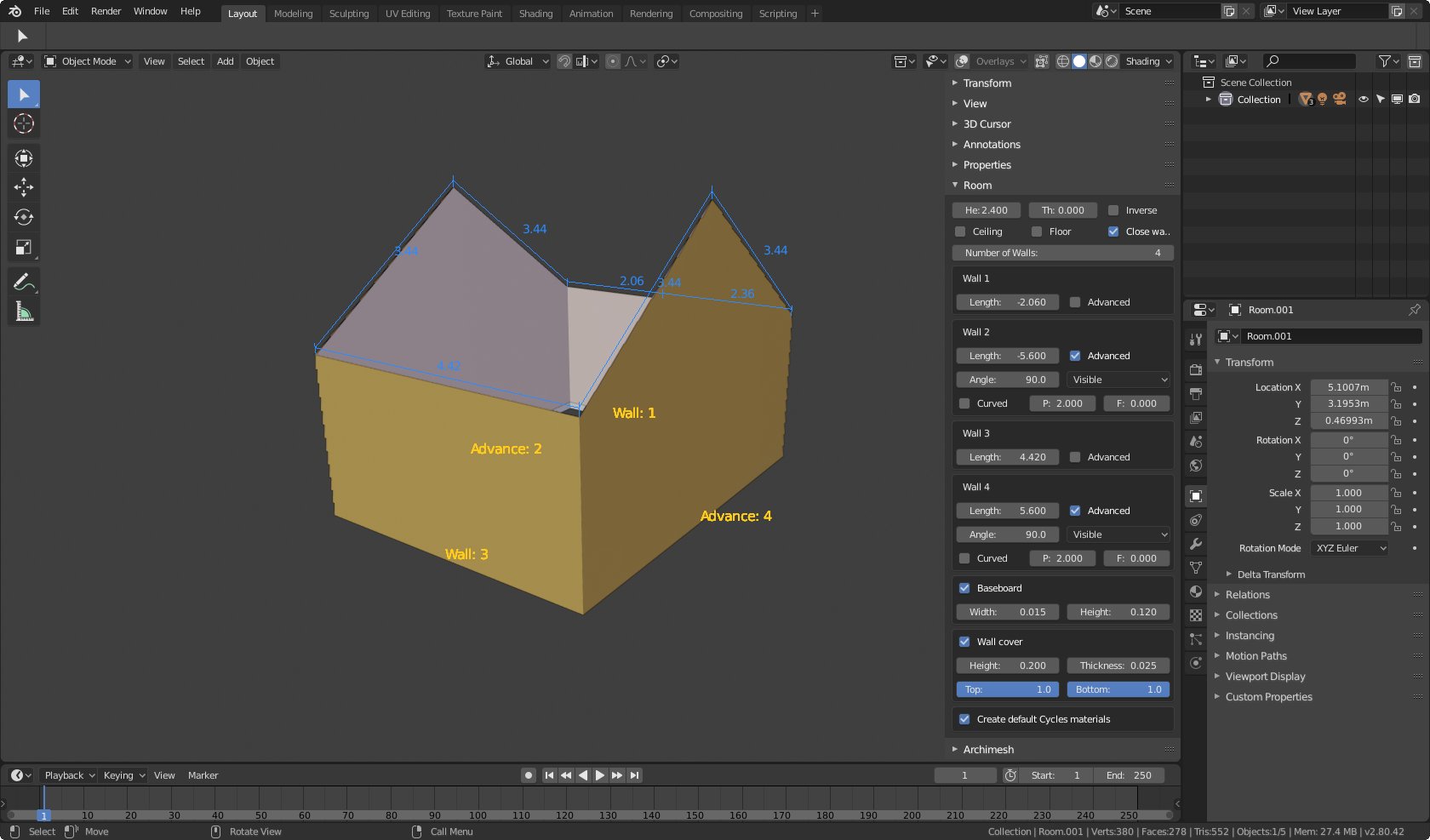
Jeroen Bakker released a new version of his commercial crowd simulator CrowdSim3D which now can simulate larger crowds faster and with smoother motion. He also released a beta version available for Blender 2.80 that makes use of collection management and Eeevee.
Google and Sony Pictures Imageworks announced the release of OpenCue, an open source render manager. See our earlier post about it for details.
CAD
One thing we completely missed earlier this month is OpenSCAD 2019 Release Candidate 1. There are no builds, just the source code though, and by now, building from the master branch would be advisable. Still, it’s a good sign that the release is not too far off.
Meanwhile, Yorik van Havre has been teasing people with IFC diffing in FreeCAD:
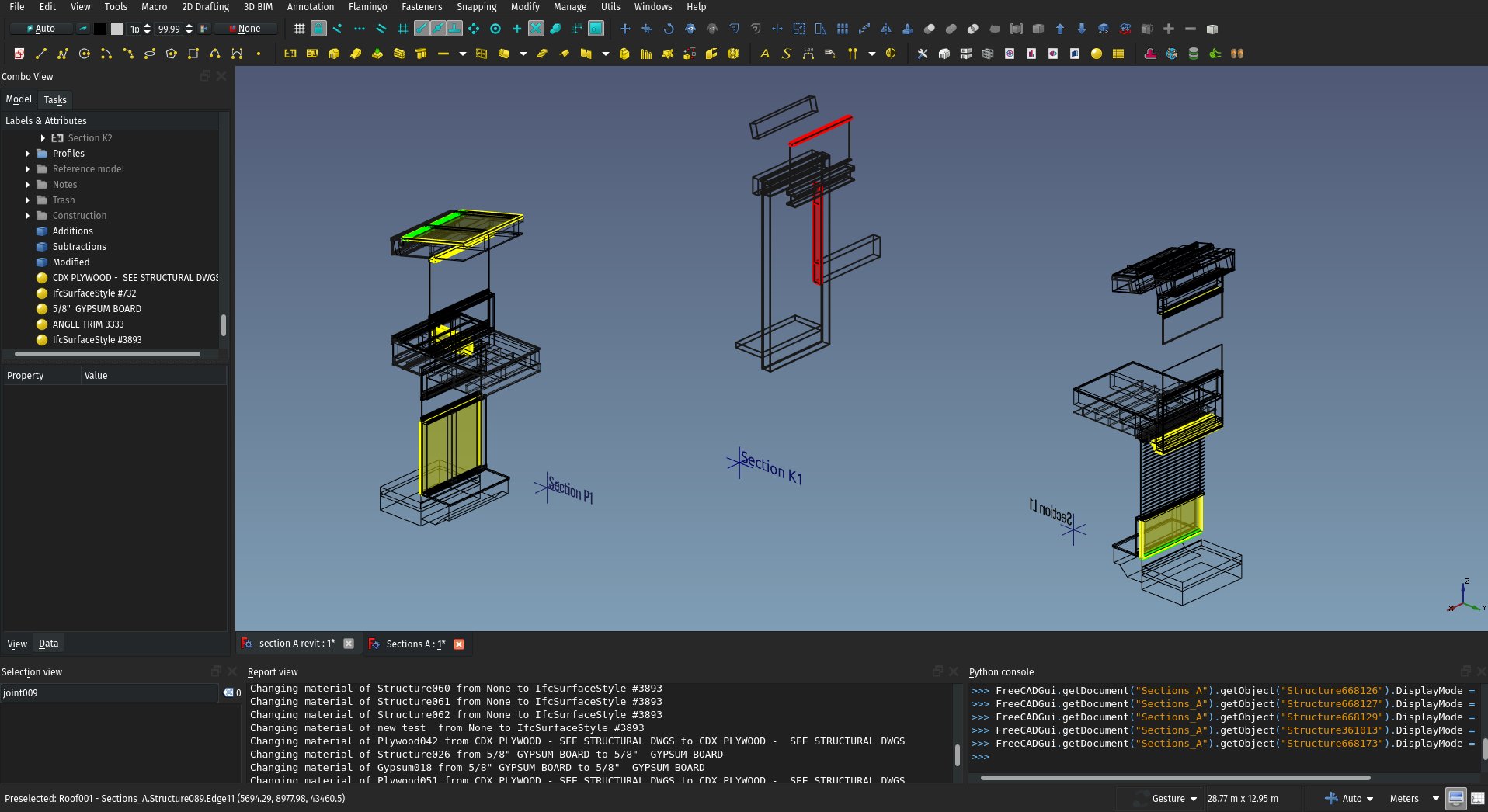
Video
The reality show that is development of Olive gives us this week:
- Complete implementation of VST2 support on Linux, Windows, and macOS
- A much wider choice of blending modes (all GLSL-based)
- Various optimization
- The timeline toolbar now supports flow layout (buttons will regroup into multiple columns, if you squeeze timeline’s height hard enough)
- A new Tile effect (mirror symmetry)
- Right-click menu for effects now has copy/paste items (you can still cleck on the effect’s header to select, then Ctrl+C to copy and Ctrl+V to past on a different clip)
- J, K, and L keys now control direction and speed of playback (also see the Playback menu).
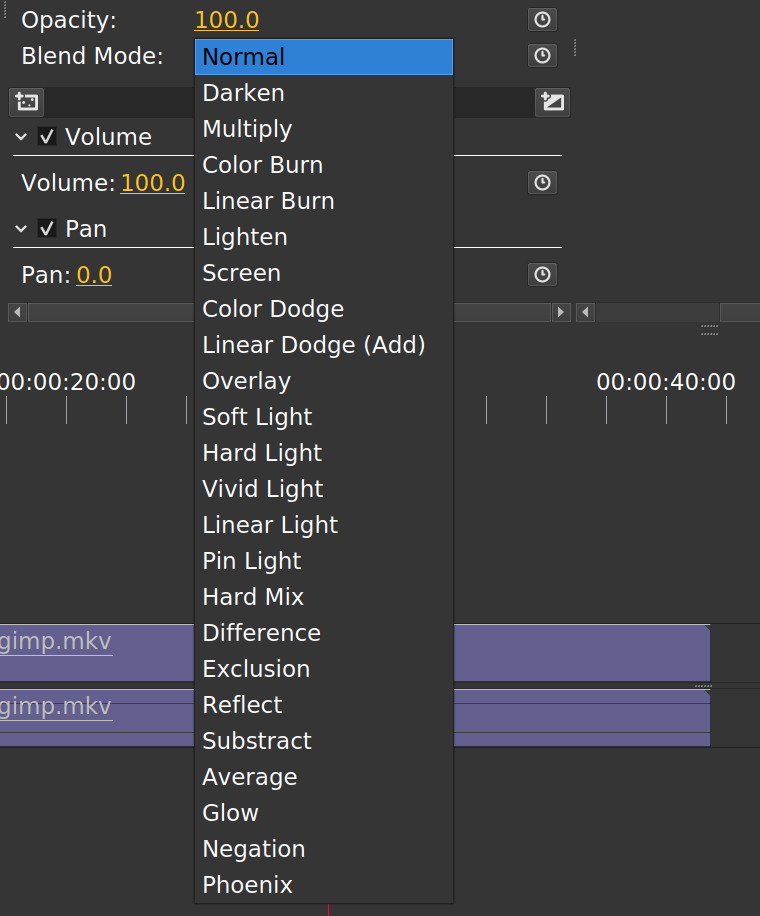
Shotcut 19.01.24 is out with a new Swirl filter and a new Chroma Hold filter (for the latter, scroll to 3:55 in the video below).
Jonathan Thomas enhanced OpenShot by adding support for constant rate factor to the exporting dialog and added a preset for lossless encoding in VP9.
The Kdenlive team is mostly busy in the ‘refactoring_timeline’ branch where all sorts of optimizations are being applied to the timeline code.
Music-making
Development branch of VCV Rack got multithreading support. Andrew Belt (lead developer) says best results are achieved when the thread count is set to the number of physical cores in the CPU. If you are really curious, all the development is happening publicly in the ‘v1’ branch on GitHub.
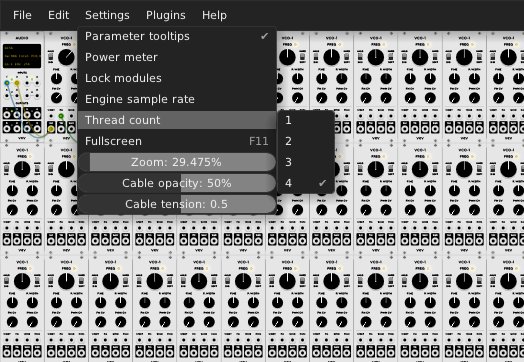
Recently, Andrew also published a short technical article explaining how polyphonic cables will work in Rack v1.
Tutorials
A very cool new Blender tutorial from Grant Abbitt: how to make ornaments really quickly using radial sculpt tools.
Kent Tramell (CG Cookie) explains in great many details how to build a DIY renderfarm for distributed Blender Rendering.
Olga Bikmullina published a text version of her “Inkscape: workflow optimization recipes” talk that she gave at CG Event 2018 conference in Moscow last December.
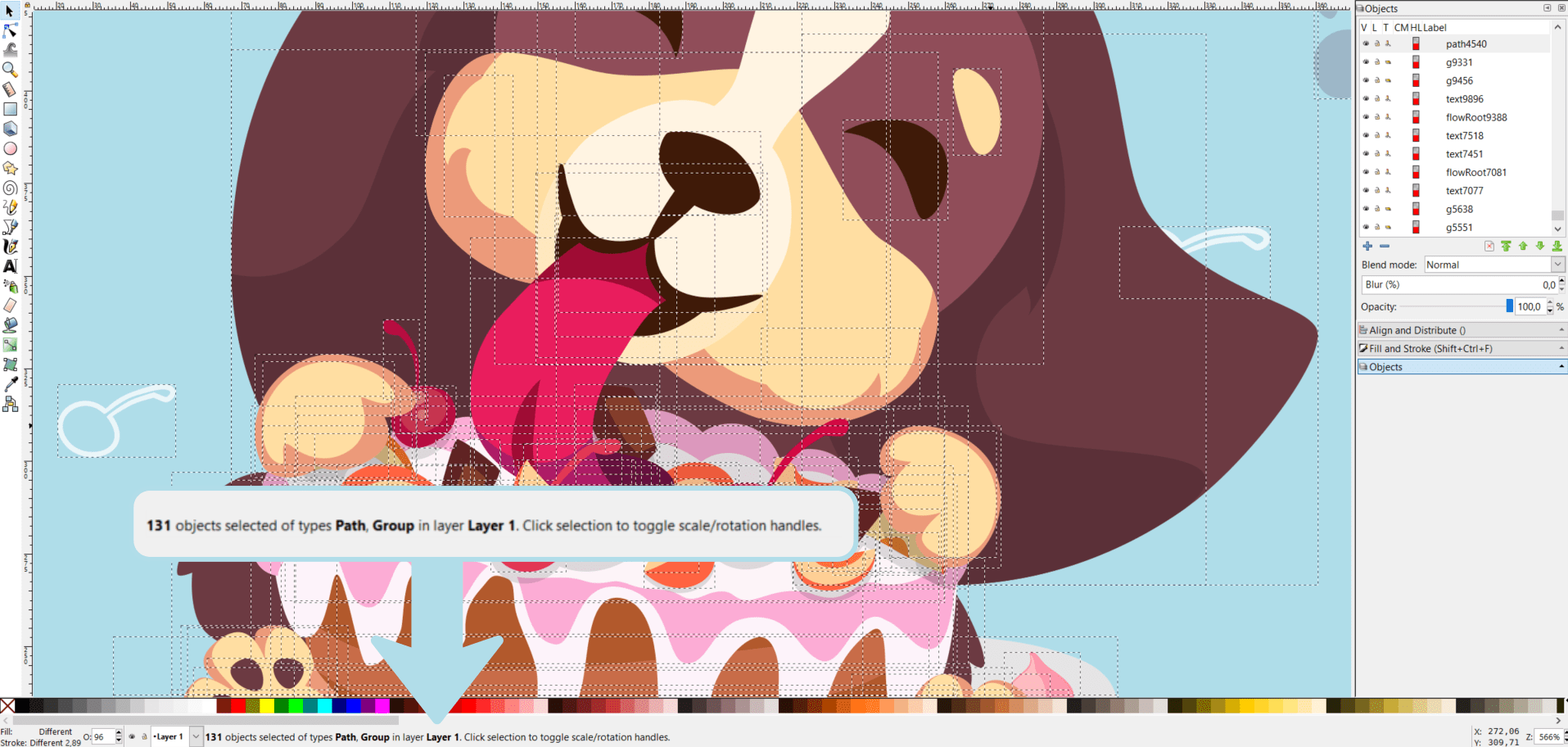
Jagvinder Singh posted a video tutorial explaining how to draw Google Photos logo.
Pixovert published a quick tutorial explaining the use of the Mono Mixer filter in GIMP to create a black-and-white image (basically, a standalone version of the old Color Mixer filter in Mono mode).
Flare Strikes31 posted a Krita tutorial on painting clouds.
And for youtubers, here is a design tutorial from GDquest explaining how to create a YouTube thumbnail from scratch with Krita.
Nathan Lovato and his team keep producing tons of Godot tutorials. One of the new ones covers the topic of pathfinding in Godot 3.1.
Art and showcases
David Revoy posted a new episode of Pepper & Carrot comics that he produces with Krita and Inkscape (this time, Blender was used too).
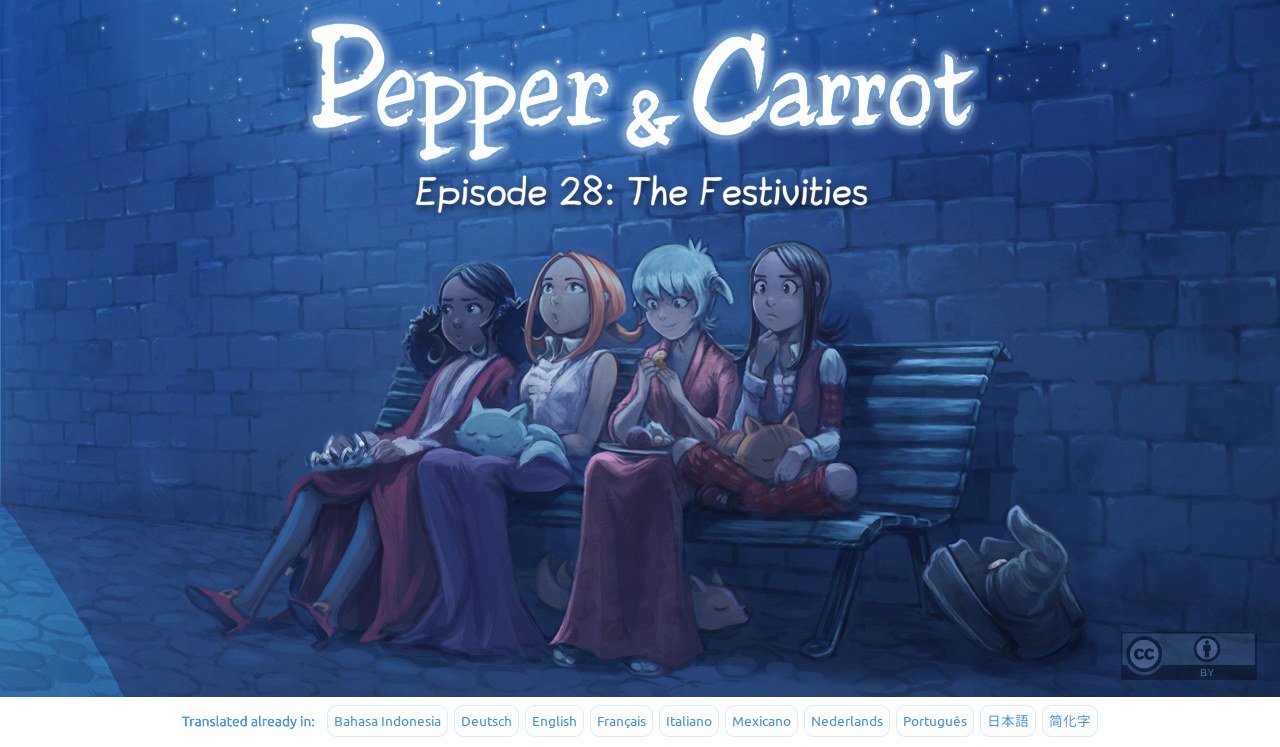
New Krita-powered artwork, ‘Old Ruins’, from Nikolai Mamashev (Morevna Project):
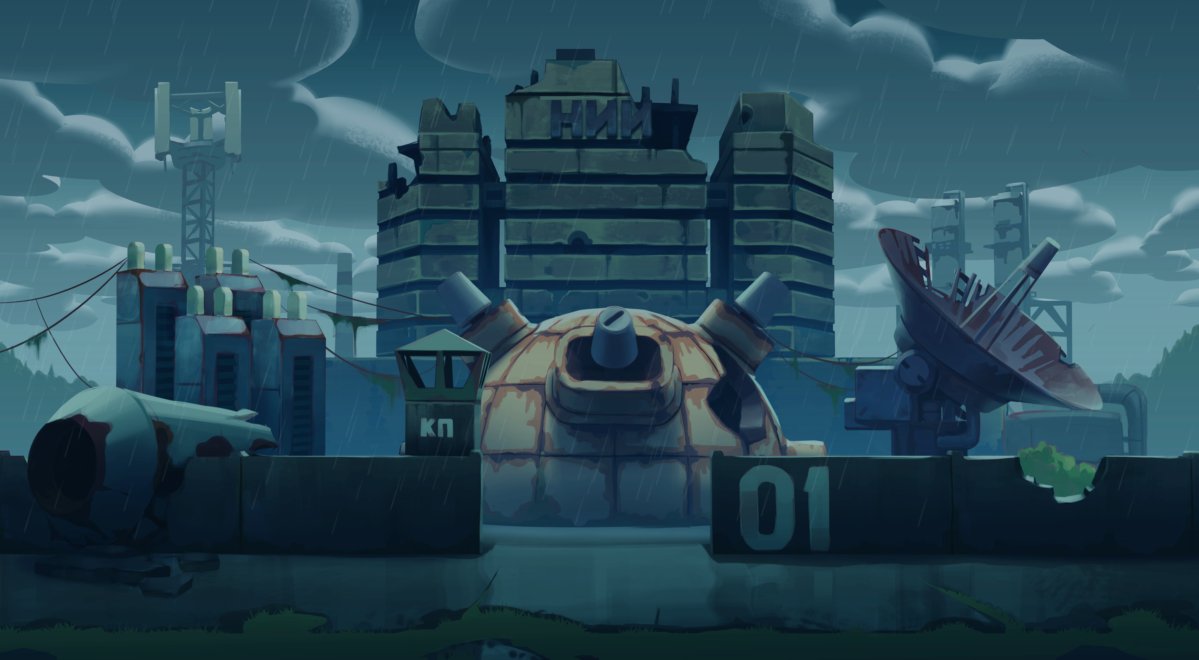
Here is a neat little animation made with Blender by Louis du Mont. He also wrote ’the making of’ post about it.
Made a little song in #flstudiomobile. Thought I'd create a 3D character for it. #b3d #eevee #dance pic.twitter.com/AXKLc0orCV
— Louis du Mont (@louisdumont) January 22, 2019
Scott Reinhard used QGIS and Blender to make a cool render of Death Valley (California) using 3D elevation data and a 1956 army topographic map.
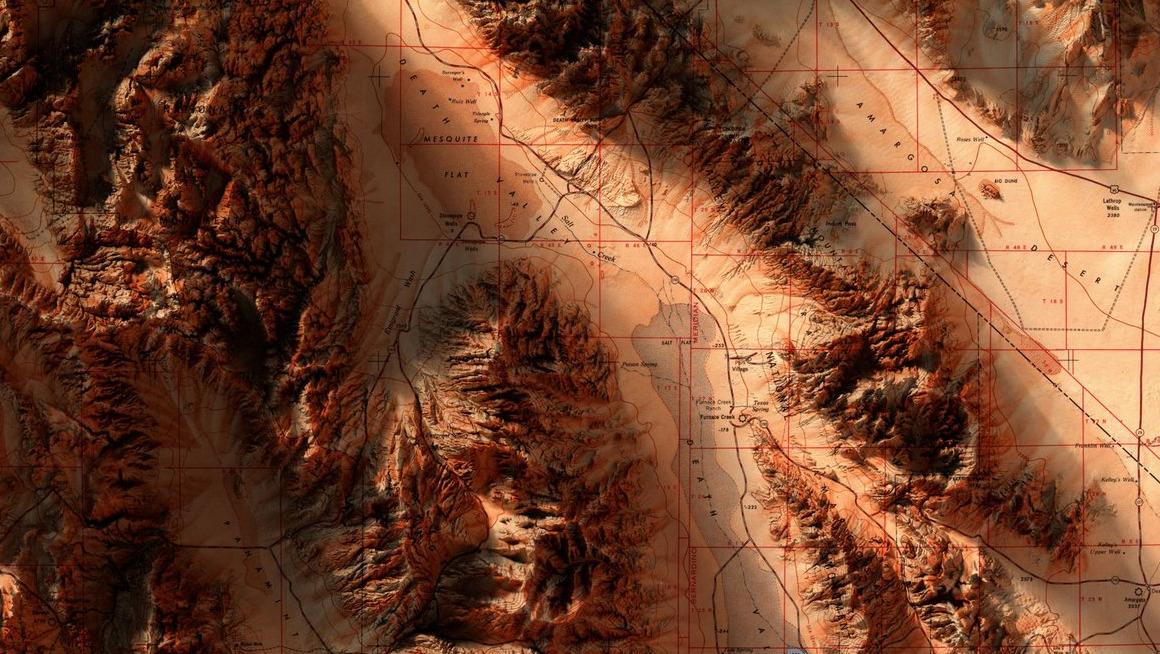
Finally, if you are into the bizarre art of Avid Media Composer timeline screenshots, you will definitely appreciate this timeline screenshot of Blender VSE featuring the entire Spring animated movie sequence, as taken by Andy Goralczyk.
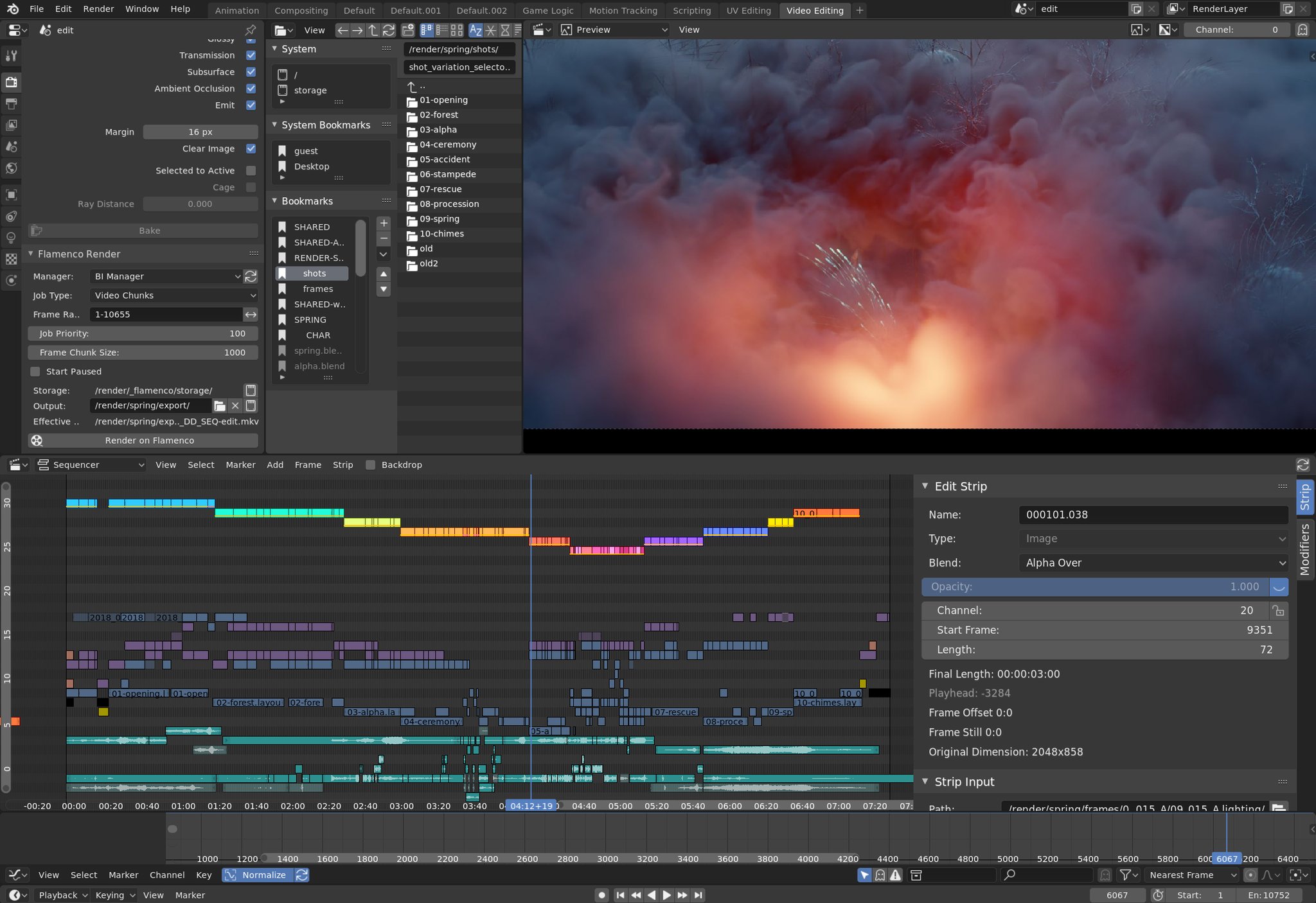
Patreon subscribers get early access to my posts. If you are feeling generous, you can also make a one-time donation on BuyMeACoffee.
